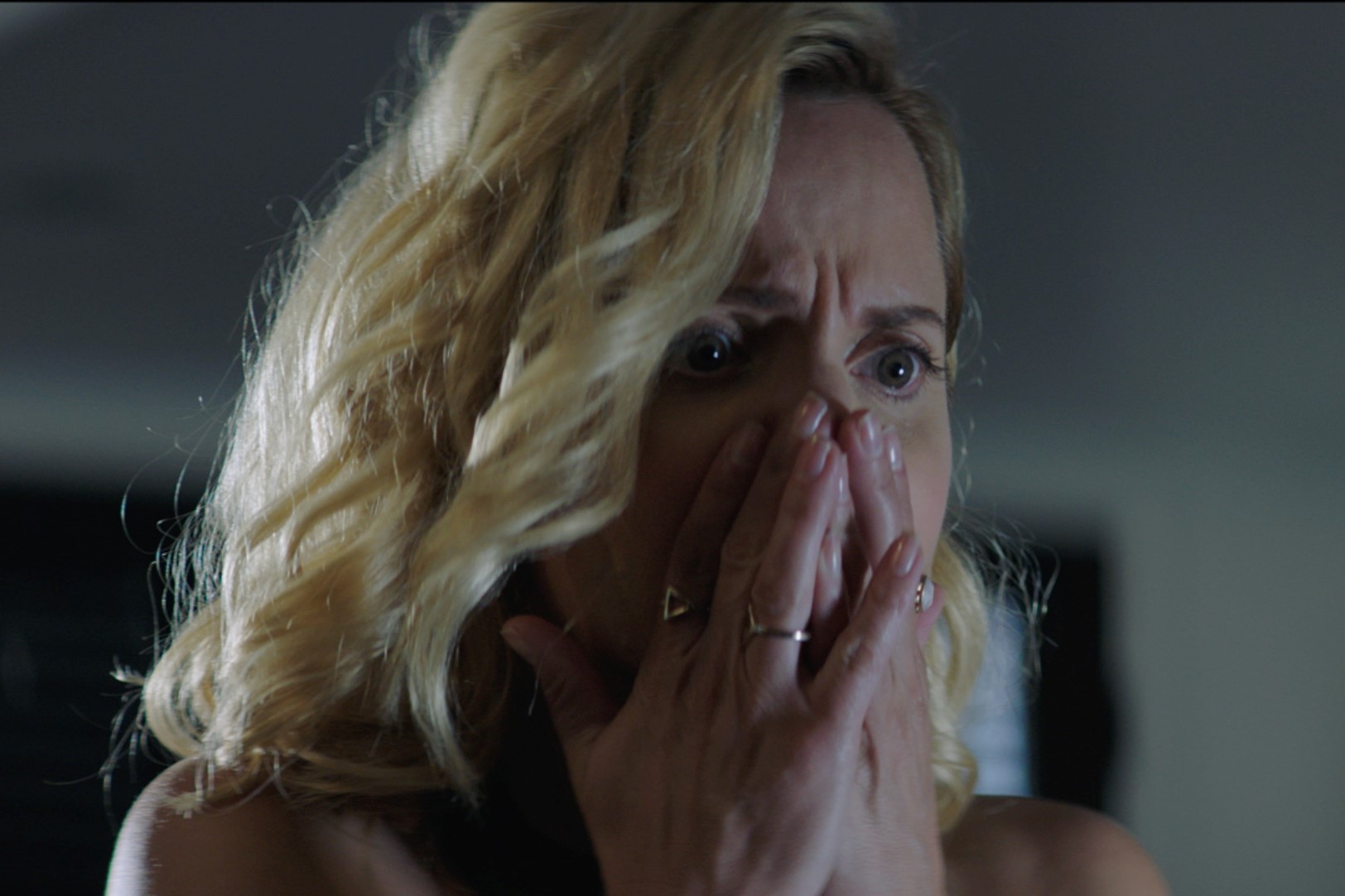As titles go, it couldn’t be more blunt. The death of Nicole Brown Simpson at the alleged hands of her former husband OJ Simpson in 1994 was one of the most infamous crimes of the 20th Century. Perhaps only the atrocity committed by the Manson Family against Sharon Tate and friends a quarter of a century earlier has had such a lurid impact on popular culture. Filmmaker Daniel Farrand’s seems to have a thing for beautiful corpses, as he’s followed up the critically-reviled The Haunting of Sharon Tate with this take on Nicole’s sad end. The omens are good. The Murder of Nicole Brown Simpson purports to give a voice to the victim but is even more loathsome for smearing its grubby exploitation tendencies in a thin salve of assumed feminism.
The film follows Nicole (Mena Suvari) in the last few months of her life With her divorce finalised she tries to pick up the pieces of her life and begin again with a clean slate. She crossed paths with Glen Rogers (Nick Stahl), a drifter who also happens to be the Casanova Killer, and the two end up on a collision course.
There is so much wrong with The Murder of Nicole Brown Simpson that it’s difficult to know where to begin. Clunky dialogue, choppy editing that seems to randomly cut within scenes a few frames too early or too late, and indifferent performances from faded stars Suvari and Stahl – huge negatives that would scupper most movies – are actually the least of the problems here. No, the main issues with The Murder of Nicole Brown Simpson stem mainly from the sheer disingenuous nature of the project. Farrands may claim his film is an attempt to give Nicole an authentic voice, but it is still only ever that of a victim. “My name is Nicole Brown,” she insists on more than one occasion; an assertion undermined by the very title of the film. Beyond this, to posit an alternative theory that Glen Rogers killed Nicole and her friend Ron Goldman on nothing more than a baseless claim allegedly made by Rogers to his brother, is as crass and sensationalist as any coverage ever given to the entire sorry affair. It wouldn’t be surprising to see OJ’s name pop up as an executive producer.
There is lip service paid to the all-too-familiar situation where the victims of abuse are not believed. Police called to Nicole’s home dismiss her as a perennial waster of their time and flat-out ignore her claims that her life is in danger. To then depict her murder with the leering, lingering focus Farrands utilises just reeks. The message is absolutely relevant, but the delivery is all wrong, like a seminar on child care delivered by Boris Johnson.
The Murder of Nicole Brown Simpson is a mendacious and tawdry piece of cut-price tripe that indulges in sub-slasher nastiness while flashing a false badge of progressiveness. Its subject deserves better than to be depicted as merely a victim of grim circumstance. It’s not as if her life is unknown; writers such as Elizabeth Wurtzel wrote articles appraising her as a person in the aftermath of her death, acknowledging all her complexities and flaws. A film such as this is nothing but a retrograde step in comparison. Throw in a cod-Exorcist dream sequence and more gratuitous scenes of Rogers going about his gory business to pad out the running time and it still feels like this lean 82 minutes runs out of anything of worth to say very quickly.
Available to stream now.
